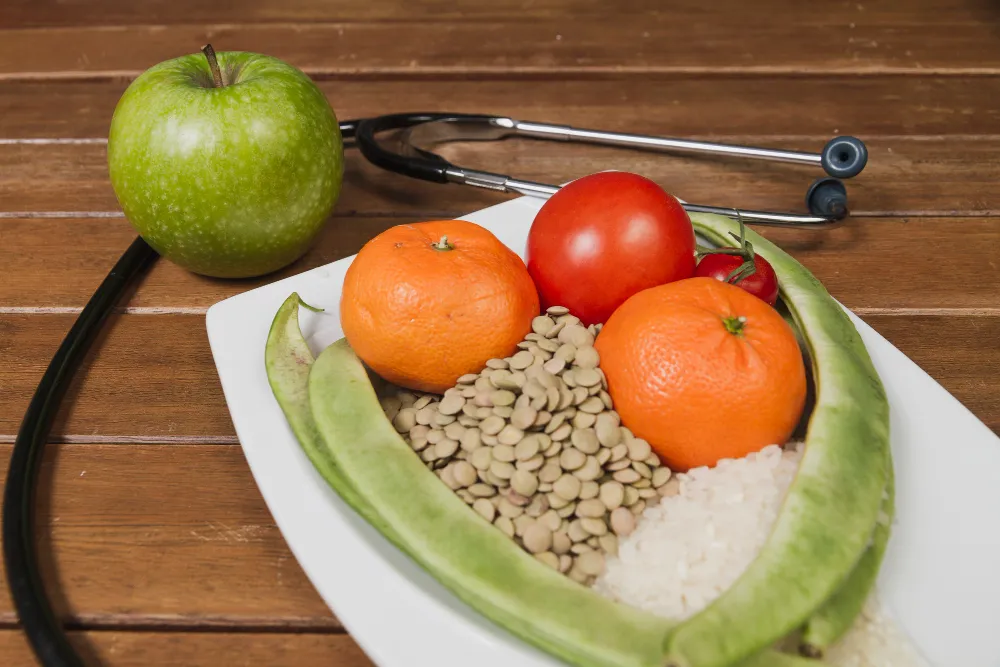
Nutrition for People Living with HIV | AIDS
Proper Nutrition for People Living with HIV
HIV (Human Immunodeficiency Virus) is a chronic condition that affects the immune system, making the body more vulnerable to infections and other diseases. With medical advancements, people living with HIV can now lead long and healthy lives if they adhere to antiretroviral therapy and maintain a healthy lifestyle. Among the key factors that play a crucial role in enhancing the health of these individuals is proper nutrition.
In this article, we will explore the importance of nutrition for people living with HIV, how a balanced diet can support the immune system, improve quality of life, and reduce complications related to the virus.
The Importance of Nutrition for People Living with HIV
Individuals living with HIV face multiple health challenges, including unexplained weight loss, nutrient deficiencies, and weakened immune systems. Therefore, nutrition plays a pivotal role in:
- Enhancing the immune system: A diet rich in vitamins and minerals helps strengthen the immune system, reducing the risk of opportunistic infections.
- Maintaining a healthy weight: Unexplained weight loss is a common symptom in people living with the virus, which can lead to malnutrition. Proper nutrition helps maintain body mass and muscle mass.
- Improving medication effectiveness: Some antiretroviral medications are affected by the type of food consumed and may need to be taken with or without food to enhance absorption.
- Reducing medication side effects: Antiretroviral medications can cause side effects such as nausea or diarrhea. Proper nutrition can alleviate these symptoms.
- Improving quality of life: Good nutrition boosts overall energy, improves mood, and reduces fatigue, thereby enhancing the quality of life.
The Five Most Essential Nutrients for People Living with HIV
To ensure the body receives the necessary nutrients, the diet for people living with HIV should include the following:
- Proteins:
Proteins are essential for tissue repair and muscle building, especially since people living with HIV may experience muscle loss. Good sources of protein include:- Lean meats (such as chicken and turkey)
- Fish (such as salmon and tuna)
- Legumes (such as lentils and beans)
- Eggs and low-fat dairy products
- Complex Carbohydrates:
Carbohydrates provide the energy needed by the body. Focus should be on complex carbohydrates that contain fiber and help maintain blood sugar levels. These include:- Whole grains (such as brown rice and oats)
- Whole wheat bread
- Fresh fruits and vegetables
- Healthy Fats:
Healthy fats help the body absorb fat-soluble vitamins (such as vitamins A, D, E, and K) and support heart health. Sources of healthy fats include:- Avocados
- Nuts and seeds
- Plant oils (such as olive oil and canola oil)
- Fatty fish (such as salmon and sardines)
- Vitamins and Minerals:
People living with HIV may suffer from deficiencies in certain vitamins and minerals due to impaired nutrient absorption or side effects of medications. Important vitamins and minerals include:- Vitamins A, B, C, D
- Minerals such as potassium, magnesium, and iron
- Fluids:
Drinking adequate water is crucial to maintaining hydration, especially if the individual experiences diarrhea or vomiting as medication side effects. It is recommended to drink 8-10 cups of water daily.
5 Nutritional Tips for People Living with HIV
- Eat small, frequent meals: If the individual suffers from loss of appetite, meals can be divided into smaller portions every 2-3 hours.
- Avoid unsafe foods: Raw or undercooked foods (such as raw meat or unpasteurized eggs) should be avoided to reduce the risk of infection.
- Limit added sugars: Added sugars can weaken the immune system, so the consumption of sweets and soft drinks should be limited.
- Cook food healthily: It is preferable to use healthy cooking methods such as grilling or boiling rather than frying.
- Consult a nutritionist: A nutritionist can offer personalized advice based on the individual’s health status and nutritional needs.
Common Nutritional Challenges and How to Overcome Them
- Loss of appetite:
Loss of appetite can be caused by the virus itself or medication side effects. To overcome this:- Eat small, frequent meals.
- Add flavors to food to stimulate the appetite.
- Drink natural juices or protein shakes.
- Diarrhea:
Diarrhea can lead to nutrient loss and dehydration. To alleviate it:- Avoid fatty or spicy foods.
- Consume fiber-rich foods (such as bananas and white rice).
- Drink fluids to replenish lost fluids.
- Nausea and vomiting:
Nausea can be alleviated by:- Eating small, frequent meals.
- Avoiding foods with strong odors.
- Drinking ginger or mint tea.
Conclusion
Proper nutrition is a fundamental component in managing HIV, as it enhances the immune system, helps maintain a healthy weight, improves medication effectiveness, and reduces side effects. By following a balanced diet rich in essential nutrients, individuals living with HIV can lead healthier and more active lives. Nutrition plays a vital role in improving the health of people living with HIV/AIDS, as it strengthens the immune system, enhances the body’s response to treatment, and reduces the risk of opportunistic infections. A well-balanced diet rich in proteins supports muscle health and tissue repair, while healthy carbohydrates serve as the primary energy source. Additionally, vitamins and minerals like vitamin C, zinc, and selenium play a crucial role in boosting immunity and fighting infections. It is also recommended to increase the intake of antioxidant-rich foods, such as fruits and vegetables, to maintain cell health and reduce oxidative stress.
In addition to a balanced diet, people living with HIV should avoid unsafe foods that may increase the risk of infections, such as undercooked meat or unpasteurized dairy products, due to their compromised immune system. Small, frequent meals are also recommended to avoid unintended weight loss, especially in cases of malabsorption or appetite loss related to the illness or medication.
Furthermore, hydration is an essential aspect of nutrition. Drinking adequate amounts of water helps improve digestion and reduces side effects from certain treatments. Therefore, focusing on proper nutrition is a crucial part of healthcare for individuals living with HIV, as it enhances their quality of life and minimizes disease complications.
References
Also Read More:
Polycystic ovary syndrome | HIV | AIDS | Support for people with addiction disorders | 5 Reasons to Consider Family Planning | The Importance and Benefits of Family Planning | Sexually transmitted infections | Harm Reduction | Combating AIDS | Urinary Tract Infection (UTI) | Infectious Diseases


